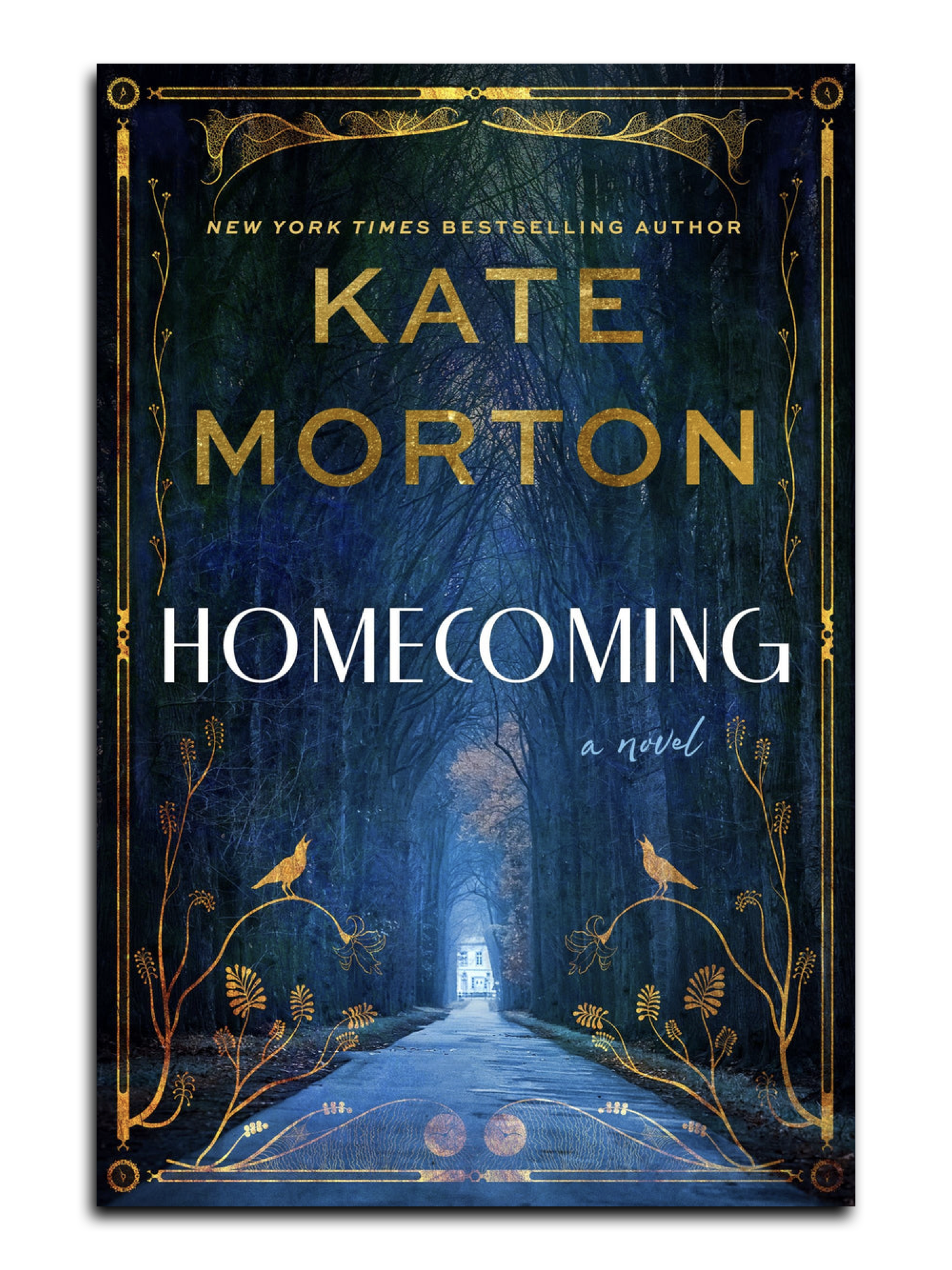Homecoming by Kate Morton
Kate Morton is back on her game with this new release, Homecoming. After a less than stellar showing for me from The Clockmaker's Daughter, Morton has returned to form and crafted a wonderfully layered story that is brimming with life in the characters she's molded.
In Adelaide Hills, Christmas Eve of 1959, a horrific discovery is made by a local delivery man beside a creek on the grounds of a grand and enigmatic mansion. The following police investigation turns the small town of Tambilla upside down and uncovers one of the most perplexing and shocking murder cases in the history of South Australia. Fast forward to the present day 2018, Jess is a journalist struggling to make ends meet after being laid off from her full-time job in London. A call from Sydney summons her back home where her grandmother, Nora, who raised her, has been rushed to the hospital. Jess finds Nora in a frail and confused state, and she discovers a true crime book in Nora's bedroom, which uncovers a shocking connection between her family and the once-infamous Turner Family Tragedy of Christmas Eve, 1959. With a cold case to solve, Jess is determined to uncover the truth.
The more typical setup for a Morton novel — a slow-but-steady start that introduces the complex web of people, the dual timelines established, and the mystery that will guide the present day character through the discovery of the truth hidden in the past. Once again, and delightfully, Morton brings to life not one, but two, houses as though they are characters on their own — Halcyon and Darling House.
Morton's ability to establish such solid and multi-dimensional characters is never more true than with Homecoming. From the main women — again exploring the complex relationships between three generations — in 2018, to the mystery and the families in the small town of Tambilla in 1959, every individual is sure, set, and knowable. The unfolding of the mystery is never the true focus for Morton, and here again she sets the stage for a mystery purely there to drive forward her two colliding timelines, set on the course of what feels like inevitability.
The trio of women starts off with a level of complexity tied directly to the scandal that happened decades before. Nora, sister-in-law and aunt to the murder victims from 1959, mother to Polly, and grandmother to Jess, acts as a stable figure in the novel, despite the fact that you know almost nothing from her present day form. What I loved about Nora's development over the course of the novel is the through line you can find that Morton has laid down and that doubles as a tripwire. Nora is in so many ways, an atypical representation of a grandmother and de facto family matriarch. I'm still pondering her hidden complexities days later.
The method by which it appears the victims were murdered in 1959 is determined to have been an ingested poison — but it's a poison that is unknown to tests at the time. As Jess works to uncover the truths from the past and unwittingly some in the present, it's clear that Morton has pushed this deadly weapon of sorts into the theme of the book. The poisonous secrets and stories that are hushed or dealt by families can do the work as good as any deadly chemical.
Something interesting for me with this one is that the present day character felt a little closer to the reader. There was a delicacy and sensitivity I felt from both Jess and Polly that it reminded me of the other Morton novels that have stuck with me so long.
Another angle Morton used in Homecoming is the book-within-a-book device. Skeptical though I was at first, I found this to be an effective way to bring out another tangled perspective from the book's author, another viewpoint at what truth actually means, and a narrowed lens for Jess to discover a family story previously unknown to her.
Homecoming was a careful unfolding of truths and a wonderful assortment of characters. I'm so glad to feel like I have Morton back.

